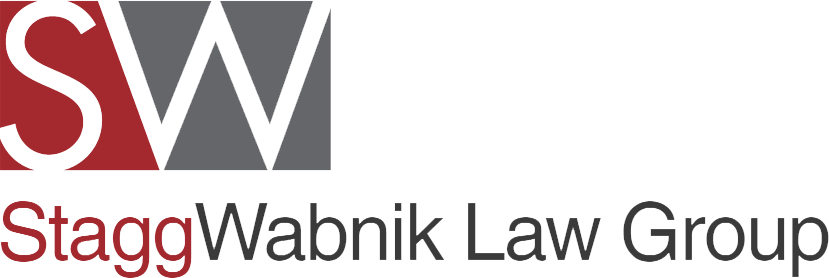Judge Grants Unprecedented Leeway in New Jersey Whistleblower Case
- Stagg Wabnik
- Feb 28, 2023
- 4 min read
Updated: Apr 14, 2023

In the fall of 2021, a man was hired by a restaurant chain in New Jersey to manage one of their locations. While in training, a co-worker with who the trainee worked closely tested positive for COVID-19. Sent home, the trainee, John Hollibaugh, tested negative for COVID-19 but had been advised to test again in 4 days since the first test could have been a false negative or could have been taken before the end of the incubation period. The manager advised the trainee to remain home until the second test returned negative. Having received the second negative test on August 30, he informed his manager and returned to work on September 2. A week later, while at work, the trainee started to experience symptoms of an illness, including a 102-degree fever, and was sent home.
Even though he continued to test negative, he continued to have COVID-19 symptoms. He returned to work a week later after his symptoms subsided. The trainee informed his manager that he once again had a fever after receiving his 2nd dose of the COVID-19 vaccine. Hollibaugh was told once again by his direct manager to remain at home until the symptoms had passed. Upon his return, the trainee was terminated from his job, he was told, since he missed more than 5 days of work. While it was Hollibaugh’s direct manager that instructed him to remain at home, the upper management of the restaurant chain decided to terminate his employment.
By September 2022, the terminated employee filed a suit against the restaurant chain and several officers of the corporation that owns the restaurant chain.
Citing New Jersey's Conscientious Employee Protection Act (CEPA), the trainee's attorneys claimed the termination was illegal because the employee was engaged in "protected acts," in this case, refusing to come to work while experiencing COVID-19 symptoms, which the employee determined to be "incompatible with a legal requirement relating to public health, safety, welfare or the protection of the environment."
The defendant's attorney filed a motion to have the case dismissed. The defendant's attorneys argued that the plaintiff's claim did not meet the 1st, 2nd, and 4th criteria for protection under the CEPA. The first criterion under the CEPA is that the employee reasonably believed the employer's conduct (in this case, wanting the employee to return to work after being exposed to COVID-19) violated a law, a regulation, or a clear mandate of public policy. While quarantining after exposure to COVID-19 was not a legal requirement, the CDC had suggested quarantining after exposure to limit the chances of exposing others to potentially serious illnesses. The defendants argued that the CDC's suggestion was insufficient to reach the standard of "a clear mandate of public policy."
The judge in the case denied the motion to dismiss the case. In his ruling dated February 3. 2023, he ruled for CEPA to be considered, and in support of the 1st criterion for the CEPA, an employer doesn't need to have broken the law. Rather, it is enough for the plaintiff to believe in good faith that an act was either illegal or against a mandate of public policy. In his decision, the judge found "that Plaintiff reasonably believed the Defendants' conduct violated a law, a regulation or a clear mandate of public policy based upon all the laws, executive orders, mandatory guidelines, and global, federal and state public policy mandates that dealt with COIVD-19 [sic] and the pandemic."
Further, the judge ruled, "the Court is satisfied that Plaintiff has pled sufficient facts establishing that he engaged in a whistleblowing activity as defined by CEPA [2nd criterion] and that Defendants terminated his employment in retaliation for that protected activity [4th criterion]."
In November 2020, in Loeb v. Vantage Custom Classics Inc., the judge, in that case, ruled that a claim was able to proceed and suggested that CEPA would protect employees who felt unsafe at work due to COVID-19, using the legal mandates to quarantine that was later enacted as the basis for creating the protected activity.
This current case takes the Loeb ruling a step further in that an employee is engaged in protected acts as long as he reasonably believes that the employer has violated a law, regulation, or policy. In Loeb, the decision was related to employees not feeling safe at work due to COVID-19 and relied on enacted mandates, which directed employees to stay at home. The Hollibaugh ruling extended the Loeb decision to a situation where the employee only has to reasonably believe that going to work would violate a regulation or policy even if no such mandate or policy was in place. It also includes employees who decide to self-quarantine after exposure to COVID-19 while still experiencing symptoms, even if COVID-19 tests continue to show negative.
It is important to note that this ruling does not grant a final verdict to the plaintiff. This ruling was just on the motion to dismiss. The ruling did not make a judgment on the strength or efficacy of the plaintiff's case, just that the "Plaintiff has pled sufficient facts establishing that he engaged in a whistleblowing activity as defined by CEPA and that Defendants terminated his employment in retaliation for that protected activity" allowing the case to proceed.





Comments